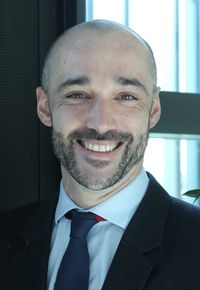This collaboration consists of institutes of higher education and NGOs from Spain, France, Belgium, and Poland.
The project is coordinated by Stichting LE:NOTRE Institute (NL) that fosters the development of knowledge in the field of landscape.
Partnering Institutions
LE:NOTRE Institute (coordinating institution) an international foundation based in Wageningen, Netherlands
Polytechnical University of Madrid - Madrid, Spain
Spanish network of municipalities for agroecology - Spain
Ghent University - Ghent, Belgium
Warsaw University of Life Sciences - Warsaw, Poland
Pracownia Dóbr Wspólnych - Poland
Montpellier Supagro - France
Terres en Villes - France
 |
The LE:NOTRE Institute –shares its expertise, network, and e-learning facilities and thus support substantially the implementation of all planned activities. Its expertise includes methods and tools for democratic planning and design, co-creation of landscape knowledge and landscape objectives, and the implementation of student-centered and highly interactive e-learning courses. This expertise will be required for designing and implementing the course development and designing the blended learning elements.
|
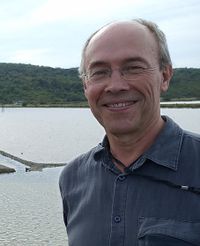 |
Ir Jeroen de Vries, landscape architect, is a researcher and the Chair at the LE:NOTRE Institute. He researches the design of foodscapes in metropolitan areas, the productivity of different typologies of UA, and strategies to integrate these in the spatial design of urban and peri-urban areas. Jeroen combines work as a professional practitioner, lecturer, and researcher. He coordinated the theme of foodscapes in the LE:NOTRE Landscape Forums in Rome, Zagreb, and Bratislava. His mission is to foster the development of local food systems.
|
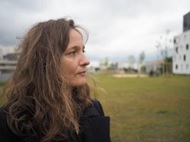 |
Roxana Triboi is a PhD architect and urban planner, specialised on sustainable food planning, food policy, nature-based solution, urban agriculture, participatory planning and transdisciplinary action research and teaching. Currently, beside coordinating the AESOP4food ERASMUS+ program for LE:NOTRE Institute, she is also the food thematic evaluator of the European Urban Agenda for EUI.
Her professional experience revolves around the urban-productive-nature paradigm and includes, among others, involvement in diverse European projects on NBS, social inclusion, participatory planning and climate change, consultancy for different Territorial Food Strategies and managing a community garden. Amongst other things she held and contributed to a series of conferences and seminars on food planning and urban pastoralism like the international conference “Food Urbanism” in Tartu (2018), Decolonizing food systems and food research (2017, ) and AESOP sustainable food planning conference (2015, 2022).
|
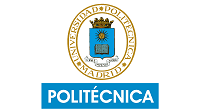 |
Universidad Politecnica de Madrid- focused on “Urbanism and Agrarian Systems” in which practical tools to integrate peri-urban agrarian areas in urban and territorial planning, as well as models and methodologies to assess and guide the design of sustainable food systems have been developed.
|
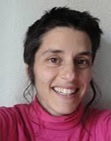 |
Marian Simón-Rojo is Dr. architect, Adjunct Professor at the Department of Urban and Regional Planning (Universidad Politecnica de Madrid). She has participated in different R&D projects dealing with spatial planning of ecosystem services and sustainable food systems: PAEC-Sp (Periurban Agrarian ECosystems in Spatial Planning), COST Action Urban Agriculture Europe, or the EraNet2 DIVERCROP. She oversees the Operational Group PAUSA (Research Platform on Organic Agriculture, Urbanism, and Food Systems). As an urban planner, she was responsible for the design of Madrid’s Food Strategy 2018.2020 and works with the Regional Government of Madrid in the recovery of abandoned agrarian land in peri urban areas.
|
 |
Founded in 2018 and composed by 22 municipalities, Red de Municipios por la Agroecología is an association of Local Authorities to promote sustainable and healthy food policies aligned with Agroecology. The network brings together policymakers, politicians and social organizations in order to support cities in the development and implementation of local food policies, through creating multi-actor Communities of Practices on different issues (e.g., health and right to food, green public procurement, legal protection of peri urban agricultural land or participatory governance processes and also enhancing P2P cooperation and political engagement. It also develops a strong activity on awareness raising oriented both to politicians (at local and national levels) and citizenships, and on sustainable food advocacy international levels, promoting processes such as the Glasgow Declaration on ‘Food and Climate’ (COP26, Glasgow 2021) or the World Sustainable Food Capital Barcelona 2021.
|
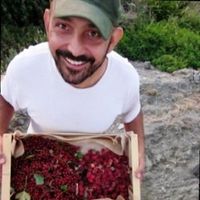 |
Jorge Molero Cortés is an Agricultural Engineer, MSc in Agroecology. Member of the Entretantos Foundation (Valladolid, Spain) and Technical Coordinator of the Red de Ciudades por la Agroecología (Spanish Cities Network for Agroecology), where he works since 2018 supporting Local Governments to achieve their Food Policies Strategies and Planning. During his professional life, he has combined consultancy, research and training with organic food production. He is specialized in economic, environmental and social sustainability of Associative and Cooperative Short Food Supply Channels,working through participation with governance and technical procedures, practices and tools.
|
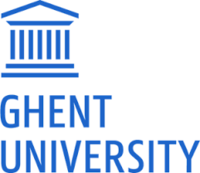 |
Ghent, University, Dept. Architecture and Planning – incorporation of urban theories and theories of urbanization within the fields of planning and design, moving away from normative design theory. Including systematic work on planning and design models to address the urbanisation of food
|
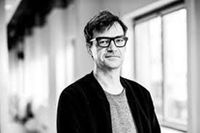 |
Michiel Dehaene (1971) is Associate Professor in Urbanism at the department of Architecture and Urban Planning at Ghent University where he leads his own research group and teaches courses in urban analysis and design. He holds a master’s degree in engineering-architecture (KULeuven 1994), a Master of Architecture in Urban Design (Harvard University 1996) and a PhD in Architecture and Urbanism (KULeuven 2002). His work focusses on sub-urban renewal, the (planning)history of dispersed urban development, sustainable cities, and food planning. His long-term research has been structured around the incorporation of urban theories and theories of urbanization within the fields of planning and design, moving away from normative design theory. This includes systematic work on urban development models and territorial strategies that support the agroecological production of food. With Chiara Tornaghi he leads the JPI SUGI Urbanising in Place project on the development of an Agroecological Urbanism.
|
 |
The Institute conducts scientific research on the relationship between nutrition and health and quality of life, including the evaluation of food products in terms of health, consumer needs and behavior regarding the level and quality of consumed food and catering services, as well as the economics of the household and the functioning of the food market in Poland against the background other European Union countries. In addition, employees of the Institute cooperate with numerous Polish and foreign or international organizations. Representatives of the Institute are involved in the activities of numerous non-governmental organizations, such as the Committee for Human Nutrition of the Polish Academy of Sciences, the Committee for Cooperation with IUNS, the Polish Society of Nutritional Sciences, HINS-Polska, TERAZ POLSKA (in the field of food products), Polish Committee for Standardization, Polish Society of Food Technologists and actively participate in the dissemination of knowledge about human nutrition.
Institute has more than 120 staff members and enrols more than 1500 students (full-time, part-time, postgraduate courses).
|
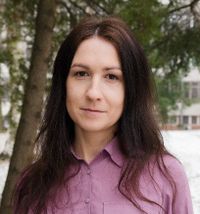 |
Anna Podlasek, Assistant Professor in the Institute of Civil Engineering, Warsaw University of Life Sciences, Head of the Department of Revitalization and Architecture. Doctor of agricultural sciences in the field of environmental protection and development. She is interested in the issues of environmental engineering and environmental protection, especially soil quality, water contamination, waste management, landfills and their impact on the environment. Involved in teaching activities in the Faculty of Civil and Environmental Engineering of WULS-SGGW. Principal Investigator in several research projects.
|
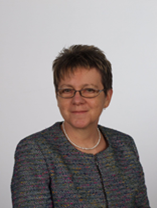 |
Professor Danuta Kołożyn-Krajewska - Research interests focus on the topics related to the health quality of food, microbiological aspects, prognostic microbiology, probiotics and prebiotics, meat technology, food hygiene, food quality and safety management systems, food waste risk analysis and sustainable development. In total, over 500 scientific and popular scientific works, textbooks and books, 10 patents. Member of the Food Sciences and Nutrition Committee of the Polish Academy of Sciences, head of the Food Safety Section, V-chairman of the Council for Rational Use of Food at the Federation of Polish Food Banks, member of the Scientific Councils of two research-development Institutes.
|
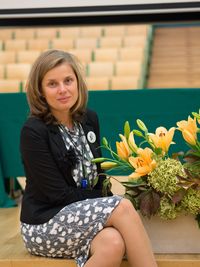 |
Dr Marzena Tomaszewska - Researcher at the Institute of Human Nutrition Sciences, Warsaw University of Life Sciences-SGGW. Member of the Food Safety Section - Food Sciences and Nutrition Committee of the Polish Academy of Sciences. Her scientific interests are are food safety and food security, food waste and loss in the food chain, organisation of foodservice establishments. She was a coordinator of hygiene section in didactic project "ABC of Healthy Eating" and one of the task of scientific and research expertise entitled "Diagnosis of the food system of the capital city of Warsaw" carried out for the Social Communication Center of the Warsaw City Hall.
|
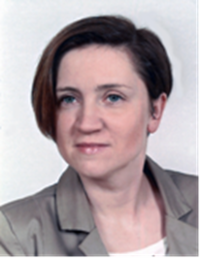 |
Dr hab. Beata Bilska - Assistant Professor at the Department of Food Gastronomy and Food Hygiene (Warsaw University of Life Sciences-SGGW). She is a member of Polish Food Technologists’ Society. Her research focuses on the food waste and food losses in the food chain – the scale, causes, the possibility of limitations, food security, food quality assurance and food safety. She has participated in different scientific project financed by Polish institutions. She was the member of the consortium implementing the project on the rational use of food in the food chain, funded through the National Center of Research and Development.
|
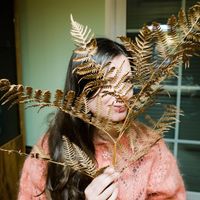 |
Dr. Aleksandra Nowysz is an architect and researcher of the Department of Revitalization and Architecture at Warsaw University of Life Sciences. She obtained her Ph.D. in Architecture and Urban Planning on urban agriculture architecture (TU Wroclaw). The author of photographic projects devoted to vernacular architecture and landscapes. She combines research, teaching and design practice with visual art and social engagements. She was a participant of the Open Design School – a pillar project for Matera as the European Capital of Culture. She was a curator of the ”City-Garden-Community” exhibition about community gardening in Poland, which was displayed in “ROD Pratulinska Garden” in Warsaw.
|
 |
Prof. Eugeniusz Koda is a geotechnical engineer and professor at Warsaw University of Life Sciences - SGGW, Poland. He has gained his professional and research experience since 1984. Areas of his principal research interest and expertise embrace remedial works on brownfields and contaminated sites; groundwater flow and transport modelling of pollutants; environmental risk assessment; soil and groundwater environmental protection systems. Actively cooperates with Polish and international companies of environmental and civil engineering profiles. His teaching activities is in the fields of Soil Mechanics, Waste Management, Land Degradation and Recultivation, Soil Contamination, Soil Treatment Technology, Sustainable Development and Landfills. He is a Member of Management Committees of COST Action TU1202 “Impact of climate change on engineered slopes for infrastructure” and COST Action CA18135 “Fire in the Earth System: Science & Society”.
|
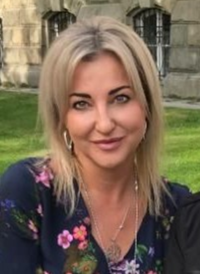 |
Assoc. Prof. Magdalena Daria Vaverková - investigator at Mendel University in Brno, Czech Republic and Warsaw University of Life Sciences, Poland. Her scientific activity covers issues in the field of environmental protection and development. She is concerned with issues related to the impact of processes and behaviours resulting from the production and processing of various types of waste on the state of the environment. The main subject of her scientific interests are waste management, waste utilization, reclamation and remediation of degraded areas, food waste assessment, and assessment of the impact of human activity on the environment.
|
|
Maciej Łepkowski is animator, gardener and researcher. In 2022 he graduated as a PhD at the Department of Landscape Art at Warsaw University of Life Sciences, where he deals with the topic of cities' renaturalization and informal urban green spaces. Master of Philosophy, graduate of postgraduate studies "Public Space / Art / Democracy. Relations and Opportunities" at the SWPS University of Humanities. An active participant of the Open Jazdów - Partnership for the Jazdów Estate, among others he co-implemented the Community-management model for Jazdów Settlement project, financed by the European Cultural Foundation. Co-creator of community gardens - in Olsztyn, Dortmund and Warsaw, curator and coordinator of the Green Jazdów 2013/2014 project carried out by the Center for Contemporary Art Ujazdowski Castle, co-organizer of the 1st International Congress of Community Gardens Creators as part of the Malta Festival in Poznań in 2014. A member of the Parque-No collective implementing projects on the border of art and social animation focused on the subject of garden and nature. He also gained organizational and design experience while working for the BORIS Association, where he coordinated a large, three-year project, financed from the European structural funds, devoted to the social economy (OWiES Social Economy Initiatives Support Center). He co-created and co-coordinated the Bujna Warszawa community gardens support program (2017 - 2021).
|
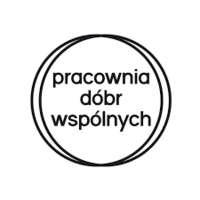 |
Pracownia Dóbr Wspólnych is a platform for action, creating and developing practical alternatives in the face of visible and looming systemic social, ecological, economic and other problems on the horizon. To meet them, the platform sees the need to experiment with new models of life, work and sharing. They support (or want to support) local currencies, municipal gardening, cooperatives and other forms of co-ownership, protection of environmentally and socially valuable resources. They are also interested in activities reviving democracy at the local level. https://jazdow.pl/domki/3-9/
|
 |
Institut national d'enseignement supérieur pour l'agriculture, l'alimentation et l'environnement, the institut Agro, is a French public institution devoted to higher education and research in Agriculture, Food and Environment. The Institute has been created in January 2020, resulting from the merger of two higher education institutions, Agrocampus Ouest (Rennes) and Montpellier SupAgro (formerly F MONTPEL10). Montpellier SupAgro is also now one of the two internal schools of Institut Agro.
The school in Montpellier is widely open to international issues and partnerships, with specific focus and recognized expertise on southern and Mediterranean areas. In 2011 it created a Chair in World Food Systems (WFS), labeled by UNESCO within the framework of the international Unitwin/UNESCO Chairs programme, in partnership with Agropolis International institutions.
The aim of this Chair is to increase and disseminate academic and empirical knowledge on world food systems (in particular urban food systems), their diversity, their dynamics and their human and environmental impacts from the standpoint of sustainable development: qualitative improvement of food diets, reduced access to food inequalities, food production systems and optimized logistics, limiting food waste and recycling waste streams locally, feeding practices, etc.
|
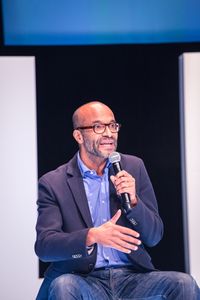 |
Damien Conaré, agronomist, is the Secretary-General of the UNESCO Chair on World Food System, at Montpellier SupAgro (The French National Institute of Higher Education in Agricultural Sciences). This Chair has specialized in city-region food systems through educational training, the valorisation of research projects (URBAL and Foodscapes), and the dissemination of knowledge through conferences and publications. Damien was one of the co-editors of the book « Designing Urban Food Policies ” (Springer, 2019). www.springer.com/gp/book/9783030139575
|
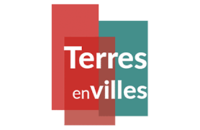 |
Terres en villes is an NGO network created in 2000 gathering 27 cities willing to exchange their knowledge and mutualize their approaches in the fields of food planning.
Terres en villes is the French network of Food and Agriculture policy actors. Created in 2000, the association now gathers 25 cities willing to exchange their knowledge and mutualize their approaches in the fields of food planning.
Terres en villes pursues three missions: Promote the know-how exchanges between its members, stimulate experimentation, and enrich the debate on city, its agriculture and its food system.
These three missions are led by four categories of activities: The co-construction of agricultural and food policies, The protection and joint management of peri-urban agriculture, forest and natural sites, Agricultural economy and food governance in cities and metropolis, Europe, and decentralised cooperation.
Terres en villes is a place for exchanges, discussions and debates, for co-producing knowledge and methodologies and developing new ideas. By favoring a dialogue between stakeholders and researchers, between France and other European countries, Terres en villes can provide analysis and original tools such as national observation of territorial food projects, policy evaluation, integration of agriculture and food in planning tools.
|
|
|
Florent Yann Lardic is the managing director of Terres en Villes. (since 2023). During his career, he both occupied public and private positions. Graduated in Political Science (Sciences Po Bordeaux) and Urbanism (Institut d’urbanisme de Lyon), he worked on climate, transport, and agriculture projects at Nantes métropole, then as a policy officer and for local government national networks. Finally, he has been appointed as a Technical Advisor to the Planning and Infrastructures Minister. He next moved to the private sector in an engineering consultancy and as the CEO of an urban logistics company. Passionate about food and committed to participating in a global economic transition « from the ground », he joined Terres en Villes in 2023.
|




















